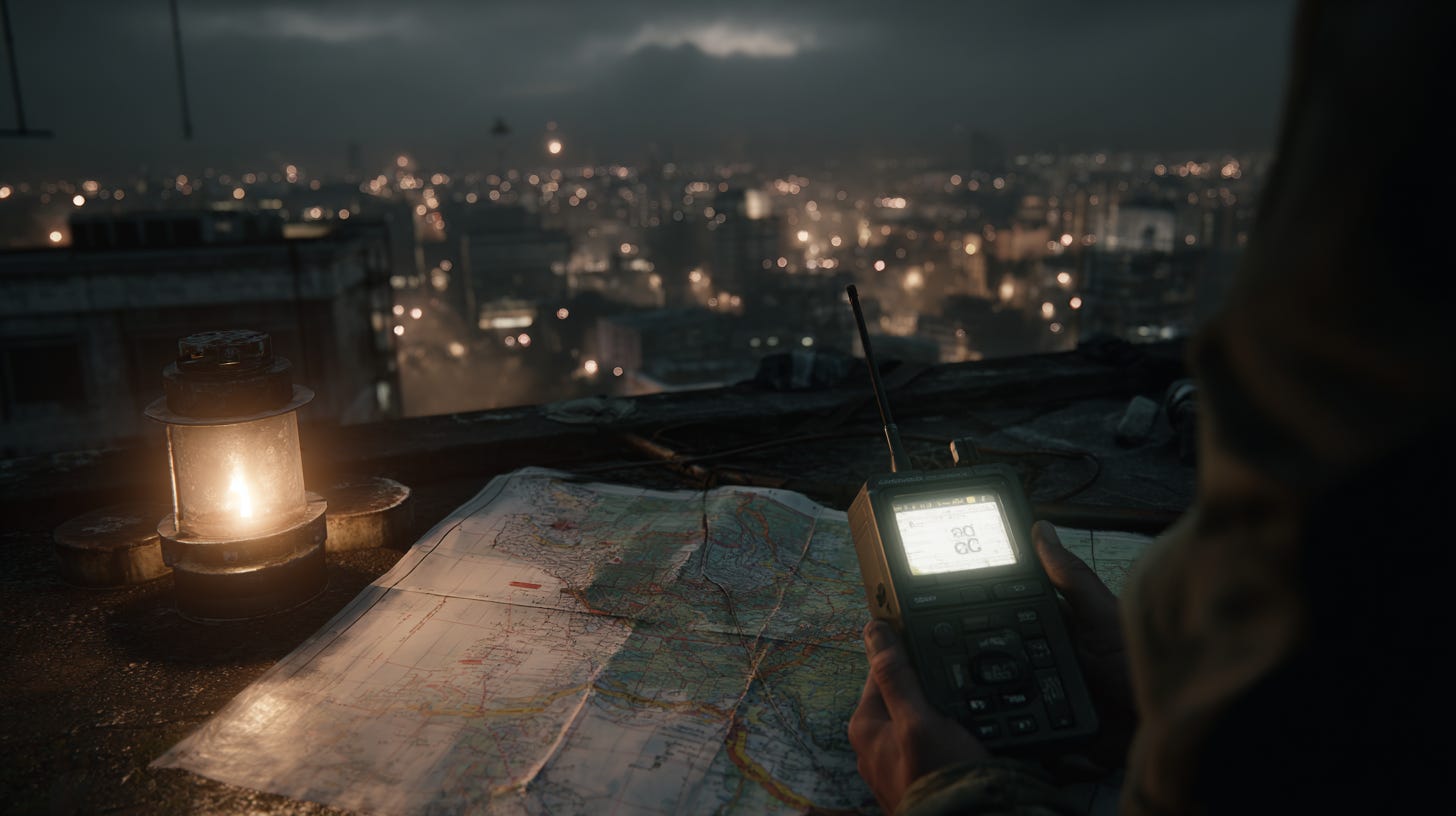Signaling & Communication: Staying Connected When the Grid Falters
When networks fail, communication becomes survival.
In every crisis, communication is the first casualty.
Cell towers go down.
The internet goes dark.
Power outages silence the news.
When that happens, the difference between being blind and being informed can mean everything.
Signaling & communication aren’t just about radios — they’re about gathering information, staying connected with your family, and navigating when the world around you shuts off.
Lessons From History
In the Balkan war, rumors and misinformation spread faster than truth.
Knowing who to trust, who to listen to, and where to find reliable information was just as important as having food.
Mike Shelby’s Area Intelligence Handbook lays this out for modern preppers: intelligence isn’t just for governments.
Communities that gather, verify, and act on information survive longer.
Radios: Your Lifeline Off the Grid
When cell service fails, radios keep working.
And they don’t depend on fragile infrastructure.
Handheld Radios: Affordable, portable, and reliable. I recommend the Baofeng AR-5RM Long-Range Radio — a solid entry point for anyone getting started.
Training Matters: Radios are useless if you don’t know how to program or operate them. The Guerrilla’s Guide To The Baofeng Radio by NC Scout (link here) is the best primer I’ve seen.
Community Networks: In a true crisis, building neighborhood or mutual aid comms nets can be a game-changer.
Intelligence Gathering
Information is survival.
Where unrest is happening, which routes are safe, whether supplies are being distributed — these details can save your life.
Local news, if still broadcasting.
Police/fire scanners.
HAM repeaters and community radio.
Human networks: neighbors, friends, community groups.
👉 For a structured way to think about this, grab Mike Shelby’s Area Intelligence Handbook — it’s a guide to building situational awareness that works even when the grid is down.
Signaling for Survival
Communication isn’t always electronic.
Sometimes it’s about signaling across short distances.
Whistles for emergencies.
Signal mirrors and flashlights.
Pre-arranged signals with family or neighbors (lights, chalk, markings).
Land Navigation: When GPS Goes Dark
If the grid fails, you can’t rely on Google Maps to guide you.
That’s where land navigation becomes an essential skill.
Compass: Learn how to shoot an azimuth and follow a bearing. I recommend the SUUNTO MC-2 Compass.
Pacing: Track your distance traveled with Ranger Beads.
Training: A great starting point is the Udemy course Basic Land Navigation: How to Find Your Way and Not Get Lost.
Navigation is a skill you should practice before you need it.
Don’t wait until GPS is gone to realize you’re lost.
Practical Tips for Pathfinders
Get a radio now and learn how to use it before you need it.
Create a family comms plan with rally points, check-ins, and backup methods.
Learn the basics of land navigation so you can move safely without GPS.
Develop neighborhood networks — your community is stronger together.
Practice discretion. What you broadcast can be used against you.
Skills, Not Just Stuff
Radios can break. Batteries can die.
But if you know how to navigate, signal discreetly, and build human networks, you’ll always have options.
Coming Next
In the next post, we’ll cover Medical & Hygiene — staying alive and well when help isn’t coming.
Subscribe and Stay Ready
This series is part of Urban Preparedness in Uncertain Times. Each post builds on the last to help you create a clear, practical plan for your family’s survival.
👉 Subscribe to Pathfinder Chronicles today and don’t miss the next post: Medical & Hygiene.



